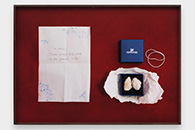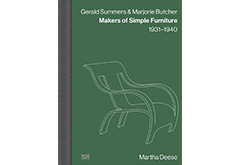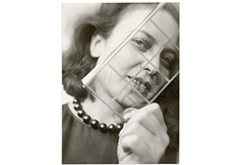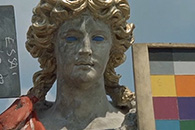-

By analyzing artist Rose Salane’s photographs of confessions written by tourists who pilfered items from the Pompeii archaeological site, this article explores the power of the material world to act on the human conscience despite the deadening effects of capitalism.
-

Deese has written what must still be regarded as an indispensable book on its subject, owing to new information from the Marjorie Summers interview and the family archive.
-

When it comes to sensible, thoughtful scholarship on the Bauhaus, one can rely on the Germans. It is their history and they take it seriously.
-

Painted statues intervene in long-standing debates about paint on sculpture and invoke the instability of commercial color film technologies to take aim at the fixed tradition of a monochrome classical past and the gendered, racialized associations that past had been designed to conjure.
Notes from the Field
-
Book ReviewGerald Summers & Marjorie Butcher: Makers of Simple Furniture, 1931–1940
-
Book ReviewInventing Late Antique Reliquaries: Reception, Material History, and Dynamics of Interaction (4th–6th Centuries CE)
This ambitious book, the fruit of a doctoral dissertation approved by the universities of Fribourg and Brno in 2019, seeks to explain how relic containers figured in the controversial Christian practice of dispersing the bodily remains of holy persons to communities far from their places of burial.
-
Book ReviewTales Things Tell: Material Histories of Early Globalisms
Through six extensive case studies, this fascinating book unpacks and eruditely fleshes out early globalisms in material and object-oriented terms, demonstrating how such an emphasis and the perspective of art history can enhance the currently expanding field of global history.
-
Translated TextHow To Make a New Spain: The Material Worlds of Colonial Mexico City
Readers of Enrique Rodríguez-Alegría’s earlier The Archaeology and History of Colonial Central Mexico (Cambridge, 2016) will reencounter familiar themes in this recent book.
-
Book ReviewObjects Untimely: Object-Oriented Philosophy and Archaeology
Time has long been a central concern of both archaeology and philosophy. For Plato, time was an absolute external reality. Aristotle, instead, emphasized the relative temporal relations between events.
